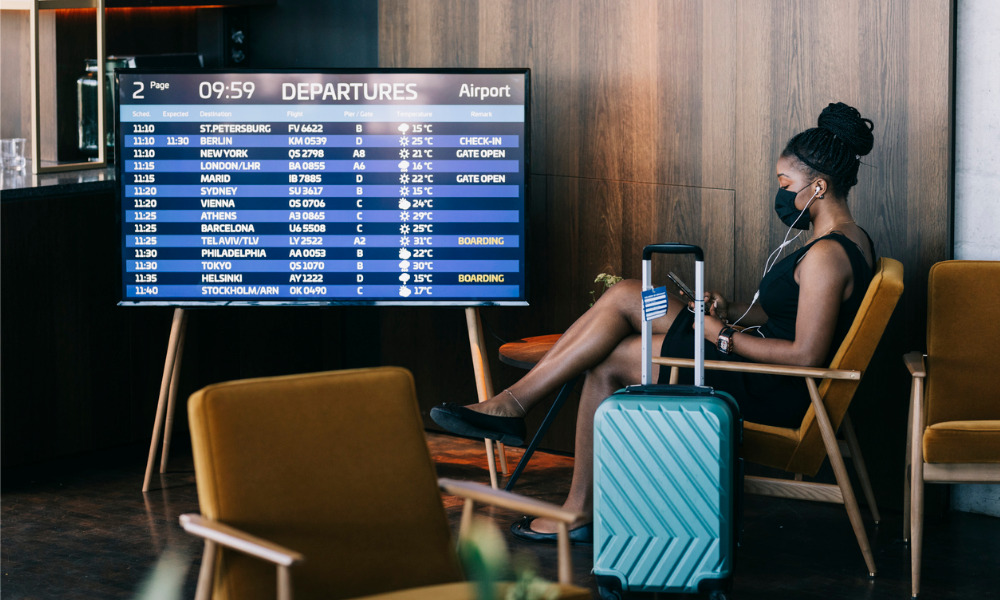Employers anticipate more trips to company headquarters but work flexibility is affecting activity

Spending on corporate travel is expected to take off this year compared with 2021, according to a new report from Deloitte.
U.S. companies expect travel spending to be 25 per cent of 2019 levels in the first quarter of 2022, and 36 per cent by the second quarter of the year. This is projected to rise to 45 per cent and 55 per cent the last two quarters of the year.
But it would take at least two years for travel spending to reach pre-pandemic levels, as travel growth is expected to slow in 2023.
“Business travel seemed to be ready for take-off last summer, but the emergence of COVID-19 variants quickly grounded plans [and] as a result, leaders are more conservative in their estimates for business travel’s recovery,” says Mike Daher, vice chair at Deloitte and U.S. transportation, hospitality and services non-attest leader.
Travel spending was eight per cent of 2019 levels in Q2 2021, 13 per cent the following quarter and 20 per cent by the last three months of 2021, according to Deloitte.
Government restrictions hampered a major return to business travel in 2021, according to a previous report.
Flexibility
Workplace flexibility is also affecting business travel, according to Deloitte, as travel managers expect the future work-from-home rate to be 2.5 times higher than before the pandemic.
For companies that are work-from-home dominant (where the average employee comes to the office zero to two days per week) in Q2 of 2022, 36 per cent expect their corporate travel spending to recover to pre-pandemic levels by the end of 2023.
Conversely, 71 per cent of office-dominant (where the average employee comes to the office at least three days per week) companies say their travel spending will recover by the end of 2023.
But what exactly is the future of business travel, in the wake of the pandemic?
However, as a result of flexible work arrangements, one in four respondents expect more trips to company headquarters, despite less frequent travel overall, found the survey of 150 U.S.-based executives with travel budget oversight, conducted in February.
“While many of us are eager to see our co-workers, clients and associates in person, technology platforms have made it possible for most businesses to not just continue their operations from afar, but thrive in doing so,” says Daher.
“Businesses are reassessing and reprioritizing when and why employees travel — which can create a suitcase full of new opportunities for organizations to evolve and grow.”










